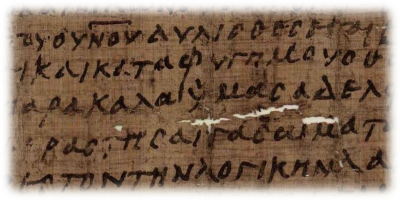The following article is the result of a survey I had taken which asked the question "What was the Hebrew name of the Bread-like substance God gave Israel in the wilderness."
It is a provable fact that translations of the Hebrew Bible relied more on the Greek Septuagint (a 2,000-year-old Greek translation of the Tanach/Old Testament) This is why we say Moses (Greek Septuagint) instead of Mosheh (Hebrew Bible), Aaron (Greek Septuagint) instead of Aharon (Hebrew Bible), Eve (Greek Septuagint) instead of Hhava (Hebrew Bible) and why we say "manna" (the focus of the survey I had taken) instead of its proper Hebrew pronunciation.
In Exodus 16:15 most translations read "...they said one to another, 'What is it?'" The King James reads "...they said one to another, it is manna..." In the survey most people agreed the Hebrew name of the bread-like substance God gave Israel in the wilderness was "Manna" with many adding that it means "What is it." Some wrote that the Hebrew was "Man Na" identifying that it was two Hebrew words meaning "What [is] It." So, what does the Hebrew of Exodus 16:15 actually say? It says "Man Hu" which is the Hebrew words meaning "What is it." Manna (or Mannah or Man Na) does not occur in this verse, nor does it occur in Exodus 16:31 which uses the Hebrew word "Man" alone. If the word Manna does not occur in the Hebrew bible, where does it come from? The only place this word is found is in the Greek Septuagint where the Hebrew word "Man" is written in Greek as "Manna."
What I have found really amazing is that while there is a heavy Greek influence on Christian translations, this influence has also entered into Judaism as well. Here is the Jewish Publications Societies (JPS, 1917) translation of Exodus 16:31 - "...Israel called the name thereof Manna..." Why is a Jewish translation of the Hebrew Bible using the word found in the Greek Septuagint for the Hebrew word "Man?" What surprised me through the survey was that the large majority of the Jews who follow Judaism thought the Hebrew word for the bread-like substance was "Manna."
Here is the final results of the survey question - "What is the Hebrew name of the bread-like substance God gave Israel in the wilderness." A total of 212 people responded and only 17 got the answer correct (9%). Here is the breakdown by religious affiliation. Of the 115 Christians who responded, 7 correctly identified the Hebrew word as "Man" (6%). Of the 55 Messianics who responded, 6 were correct (12%). Of the 17 Jewish responders, 3 were correct (21%). And of the 25 people from a different religion that responded, 1 was correct (4%).
The pronunciation of the names found in the Hebrew Bible are heavily influenced by the Greek Septuagint, not only in Christianity but in Judaism as well, as seen through Judaism's common use of names such as Manna(instead of Man), Moses (instead of Mosheh) and Aaron (instead of Aharon). But, beyond the problem of Greek versus Hebrew pronunciations is the even larger problem that much of our interpretation and meaning of Hebrew words are also influenced by the Greek Septuagint, not only within Christianity but in Judaism as well. Just how far this influence has penetrated I am not sure, but I will be doing more research into this subject in the future.
For another example of how the Greek Septuagint has influenced Bible translations, let's look at a couple of passages from the Bible.
And the boys grew: and Esau was a cunning hunter, a man of the field; and Jacob was a plain man, dwelling in tents. Genesis 25:27 (KJV)
There was a man in the land of Uz, whose name was Job; and that man was perfect and upright, and one that feared God, and eschewed evil. Job 1:1 (KJV)
From these two verses, we could conclude that Jacob was plain, just an ordinary person, nothing special, but Job, on the other hand, was rather extraordinary as he was "perfect." What you might find interesting is the word "perfect" in Job 1:1 is a translation of the Hebrew word tam, but so is the word "plain" in Genesis 25:27. So why isn't Jacob considered "perfect" by the translations just as they did with Job? This is another case of translators relying on the Greek Septuagint for their translation rather than the Hebrew text itself. The Greek uses the word amemptos, meaning "blameless," for Job and the word haplous, meaning "simple," for Jacob.

Like what you’re discovering? Continue the journey from Bible reader to translator.
|






